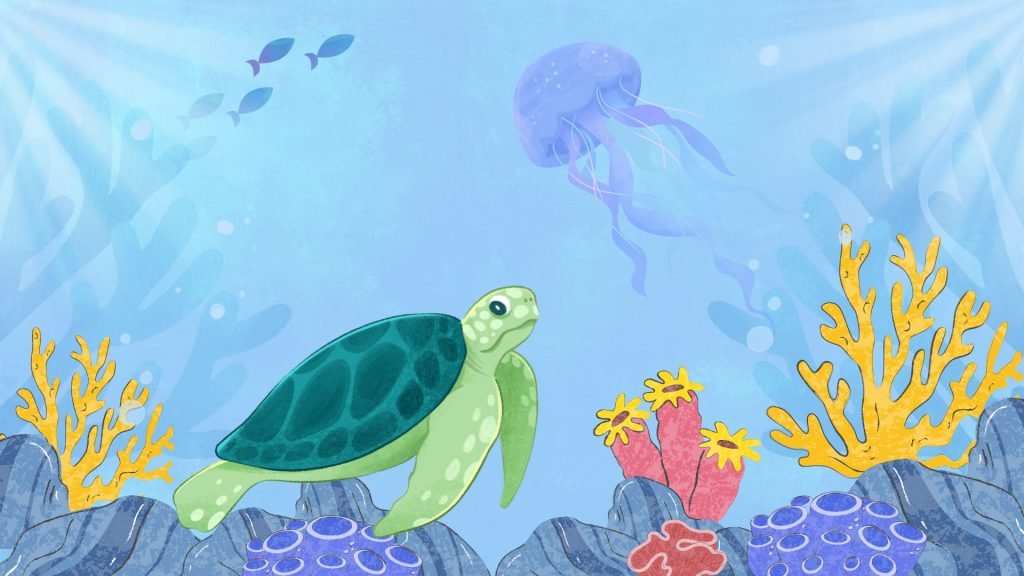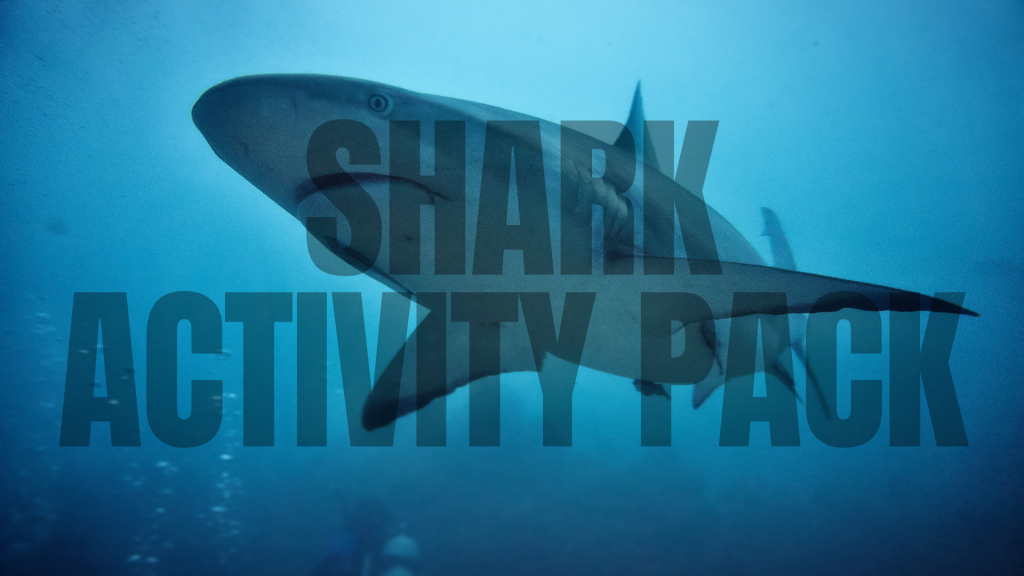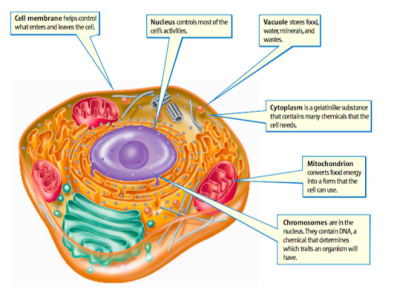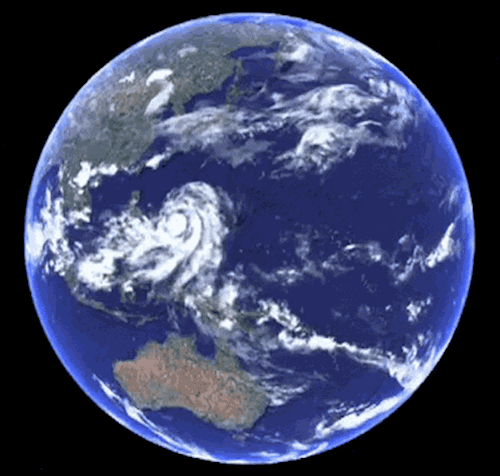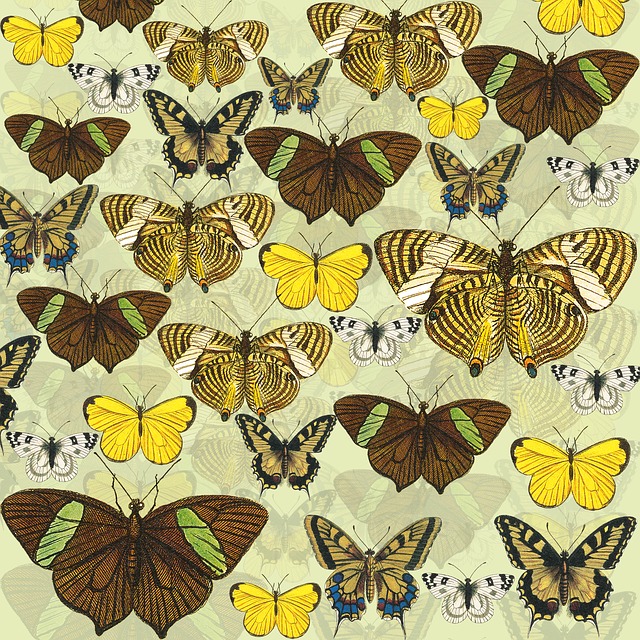The following are some free resources you can use to build a unit of oceans activities and lessons. To get an idea of how to structure your study, you can use a reference source, choose the topics you want to include, and then cover them as lightly or as deeply as you like.
One good reference site you can check out is PebbleGo. Click over to the site and enter username: hebisd and password: hebisd for free access. The site has information on oceans, which includes sections on what oceans are, ocean zones, ocean plants and animals, coral reefs, and oceans of the world. Any of these sections could be used as a basis for a unit study of its own, or as part of a larger oceans study.
Here are some addtional free resources broken down into sections that you can use to build your ocean study:
Overview and World Oceans
National Geographic has a short oceans overview article.
Oceans of the World reading comprehension
CK-12: Importance of the Oceans lesson
OLogy: Marine Biology overview
Ocean Zones
From the sunlit surface layer to the dark ocean floor, use these free resources to learn about the characteristics of each zone and the animals that live there.
CK-12: Ocean Zones lesson includes article, video, discussion questions, and online practice.
WorldAtlas: This article describes ocean zones and includes several diagrams.
Layers of the Ocean slideshow
Layers of the Ocean reading comprehension
The Abyss video
Ocean Animals
Have fun researching your favorite ocean animals, learning about habitats, diet, physical characteristics, and behavior. NatGeo’s Ocean Portal is a good place to start.
Here are some more free reference e-books:
Sharks and Other Sea Creatures
Here’s a book on Sea Turtles and one on Sea Cucumbers.
For littles, here are some e-books from the Spot Ocean Animals series:
Octopuses
Lobsters
Crabs
Sea Turtles
Dolphins
Sharks
Manatees
Jellyfish
Clownfish
Sea Stars
Sea Dragons
For elementary readers, here are some e-books from the Curious About Wild Animals series:
More free marine animal e-books:
In the Ocean
Do You Really Want to Meet an Octopus?
Basking Sharks
Do Whales Have Belly Buttons?
Under the Sea
Aquatic Alphabet Reader
Ocean’s Role in the Water Cycle
Water Cycle Interactive Tutorial: Explains how all the water on Earth is connected through the water cycle. Includes practice questions.
Earth’s Water: 2nd grade reader
Ocean Conservation
Learn about the importance of protecting the ocean and its inhabitants by reducing pollution.
This National Geographic Explorer magazine issue has an article on plastic pollution.
For more on plastics, visit this National Geographic interactive, Sea to Source, which lets you follow the plastic drinking bottle.
Ocean Exploration
This Ocean Exploration site includes information on the history of ocean exploration, modern technology used, and ocean explorers.
Visit Jonathan Bird’s Blue World for lesson plans and videos covering fascinating topics on oceans and sea critters.
Free reference books for structuring ocean unit studies:
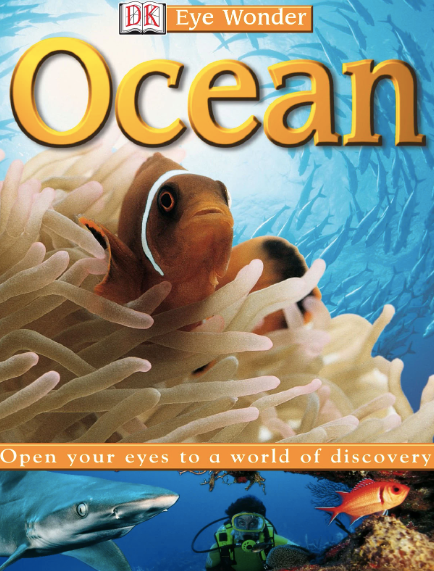
Pacific Ocean Fact Fill-In Worksheet
Layers of the Ocean: worksheet and answer key
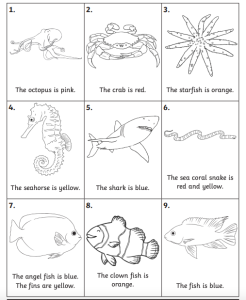
The Ocean Extras workbook includes notebooking pages, and oceans activities, including marine food chains, tide pools, ocean zones, Jacques Cousteau, and sea creatures
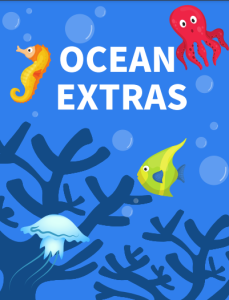
Ocean Animal Research Worksheet
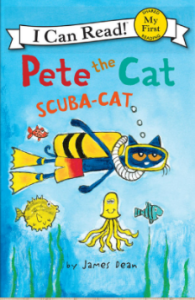
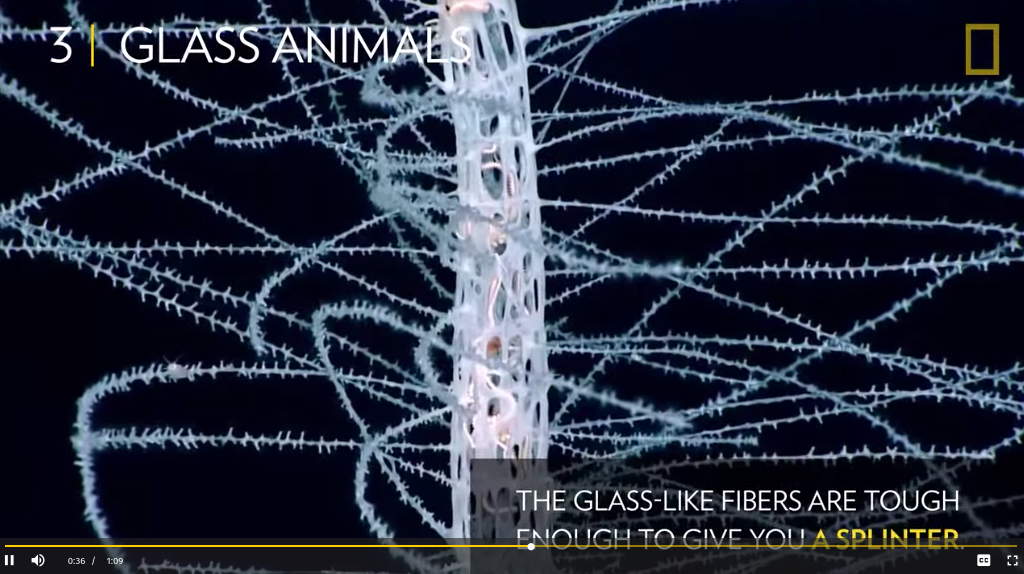
Watch Weird Sea Creatures Video
Cross-Curricular Oceans Activities
Language Arts:
Five Idioms for Ocean Lovers
Sea Fever: poem analysis and worksheet
Math:
Underwater: word problems with answer key
(The following are affiliate links. We may earn a commission if you click and purchase through them.)
Do You Really Want to Meet a Shark?
Do You Really Want to Meet an Orca?

